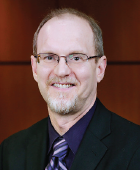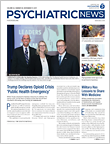Changes in psychiatric training and practice challenge the notion that the next generation of psychiatrists will consider psychotherapy a key component of their professional identity. Although the Accreditation Council for Graduate Medical Education (ACGME) requires that all graduating psychiatry residents demonstrate competence in “managing and treating patients using both brief and long-term supportive, psychodynamic, and cognitive-behavioral psychotherapies,” the expectations and opportunities for the continued development of psychotherapeutic skills among early career psychiatrists (ECPs) is limited. National trends threaten the emphasis on psychotherapy training among residents and ECPs.
Between 2001-2002 and 2017-2018, the number of ACGME psychiatry residency programs grew from 182 to 226. The number of psychiatry residents in those programs increased by 21 percent to 5,407. Although some of these “new” programs were actually preexisting osteopathic residencies seeking accreditation through the ACGME, most represent fledgling training sites intended to alleviate the national shortage of psychiatrists. Many of these programs were planted in rural or underserved areas. This stems from a conviction that it is easier to train and retain a psychiatrist than it is to recruit a psychiatrist to these locations. The program designers hope that during the four years of training, psychiatry residents will establish roots that bind them to the community. Since underserved areas have fewer psychiatrists working in them, the pool of psychotherapy instructors/supervisors among existing psychiatrists is relatively small. Psychiatrist-led psychotherapy training in these new residencies is further imperiled by the general decline of psychotherapy provided by psychiatrists.
In 1988-1989, the percentage of patients receiving psychotherapy from their outpatient psychiatrist varied from a low of 36 percent in public mental health settings to 80 percent of patients seen by psychiatrists in private practice. A survey from 1996-1997 found that 44.4 percent of all visits with an outpatient psychiatrist included psychotherapy. By 2004-2005 that percentage had fallen to 28.9 percent. The psychiatrists forming the backbone of the teaching and supervising staff for these new programs may lack the time and/or experience to emphasize psychotherapy. The requirements for psychotherapy training persist while the number of training programs increases and the psychotherapy experience of the average psychiatrist decreases. Residency programs have looked for creative solutions to this conundrum.
Some of these solutions may have an inadvertent, negative impact on the future of psychotherapy by psychiatrists. Although the ACGME requires the graduating residents be declared competent in supportive psychotherapy, cognitive-behavioral therapy, and psychodynamic psychotherapy, programs are permitted to set their own definition of competency. Stretched programs may be tempted to lower the bar. The ACGME Milestones attempt to define objective standards of competency, but still permit considerable flexibility. Programs may also turn to instructors and supervisors from other disciplines. These individuals might be excellent therapists, teachers, and role models, but in the minds of psychiatry residents, who are still developing their professional identity, this may entrench the idea that psychotherapy is not a part of modern psychiatry.
Resources have been created to meet this need. Programs may use Internet-based training tools such as McMaster University’s Psychotherapy Training e-Resource. Other technological solutions include the use of live teleconferencing of psychotherapy training and even tele-supervision when using HIPAA-compliant systems. The Psychotherapy Committee of the American Association of Directors of Psychiatry Residency Training (AADPRT) has created several tools that can be used by psychiatry residency programs to enrich psychotherapy training. Several organizations have created specialized training/mentoring programs for faculty development in psychotherapy and psychotherapy training. The American Psychoanalytic Association created the Psychoanalytic and Psychodynamic Teachers’ Academy, a year-long professional development program. The American Academy of Psychoanalysis and Dynamic Psychiatry and AADPRT sponsor the Victor J. Teichner Award, which provides a residency program with a visiting professor to improve training in psychodynamic psychotherapy. The Beck Institute for Cognitive Behavior Therapy offers the “Teaching and Supervising CBT” workshop.
ECPs seeking to enhance their psychotherapy skills can similarly seek out additional training opportunities. Many psychoanalytic institutes provide courses in psychodynamic psychotherapy in addition to psychoanalytic training. Organizations such as the Association of Behavioral and Cognitive Therapies maintain an impressive array of online training materials and provide training seminars and workshops. Many of these offer ongoing supervision and consultation as part of their services.
Perhaps the optimal solution, however, is a personal one. Psychiatrists possessing a passion for psychotherapy should be challenged to seek out opportunities to share their knowledge and proselytize for psychotherapy by psychiatrists. An “adopt a residency” approach has been discussed by the APA Psychotherapy Caucus for the last two years. Providers with psychotherapeutic expertise should engage local training programs and ECPs and promote psychotherapy by psychiatrists. Through the determined efforts of individuals and organizations, we can preserve psychotherapy as a key component of every psychiatrist’s professional identity.
References
ACGME. Number of Accredited Programs. Access
here on 18 August 2017.
ACGME. ACGME Program Requirements for Graduate Medical Education in Psychiatry. Access
here on 17 August 2017.
Mojtabai, R. and Olfson M. National Trends in Psychotherapy by Office-Based Psychiatrists. Archives of General Psychiatry 2008; 65: 962-970.
Olfson, M., Pincus, H.A., and Dial, T.H. Professional Practice Patterns of U.S. Psychiatrists. American Journal of Psychiatry 1994; 151: 89-95.

